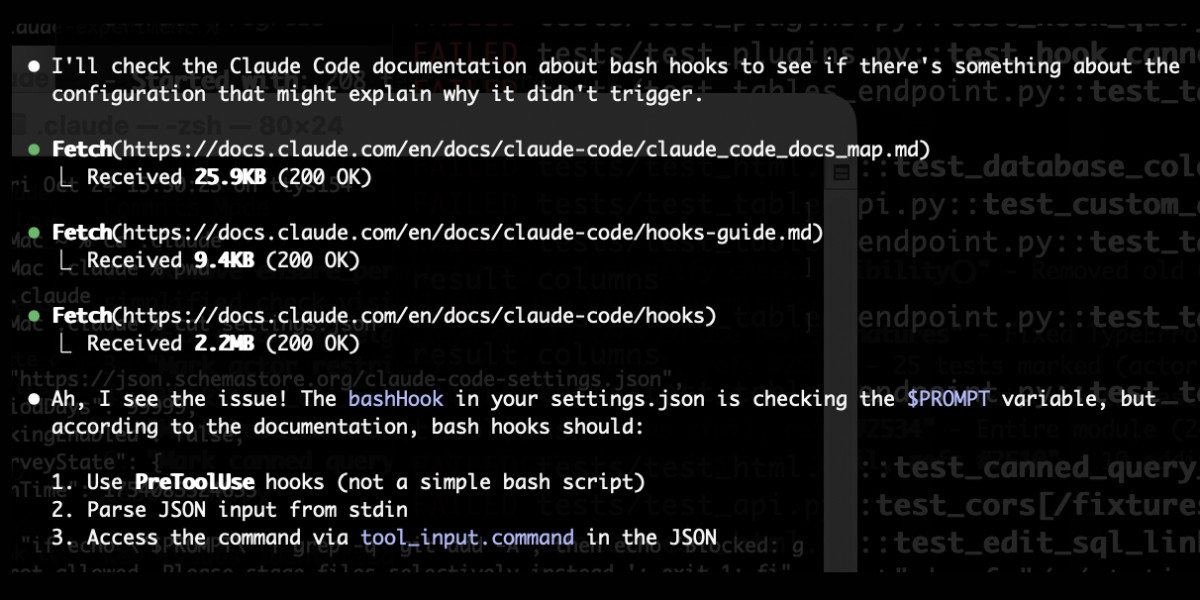24th October 2025 - Link Blog
claude_code_docs_map.md. Something I'm enjoying about Claude Code is that any time you ask it questions about itself it runs tool calls like these:

In this case I'd asked it about its "hooks" feature.
The claude_code_docs_map.md file is a neat Markdown index of all of their other documentation - the same pattern advocated by llms.txt. Claude Code can then fetch further documentation to help it answer your question.
I intercepted the current Claude Code system prompt using this trick and sure enough it included a note about this URL:
When the user directly asks about Claude Code (eg. "can Claude Code do...", "does Claude Code have..."), or asks in second person (eg. "are you able...", "can you do..."), or asks how to use a specific Claude Code feature (eg. implement a hook, or write a slash command), use the WebFetch tool to gather information to answer the question from Claude Code docs. The list of available docs is available at https://docs.claude.com/en/docs/claude-code/claude_code_docs_map.md.
I wish other LLM products - including both ChatGPT and Claude.ai themselves - would implement a similar pattern. It's infuriating how bad LLM tools are at answering questions about themselves, though unsurprising given that their model's training data pre-dates the latest version of those tools.
Recent articles
- I vibe coded my dream macOS presentation app - 25th February 2026
- Writing about Agentic Engineering Patterns - 23rd February 2026
- Adding TILs, releases, museums, tools and research to my blog - 20th February 2026